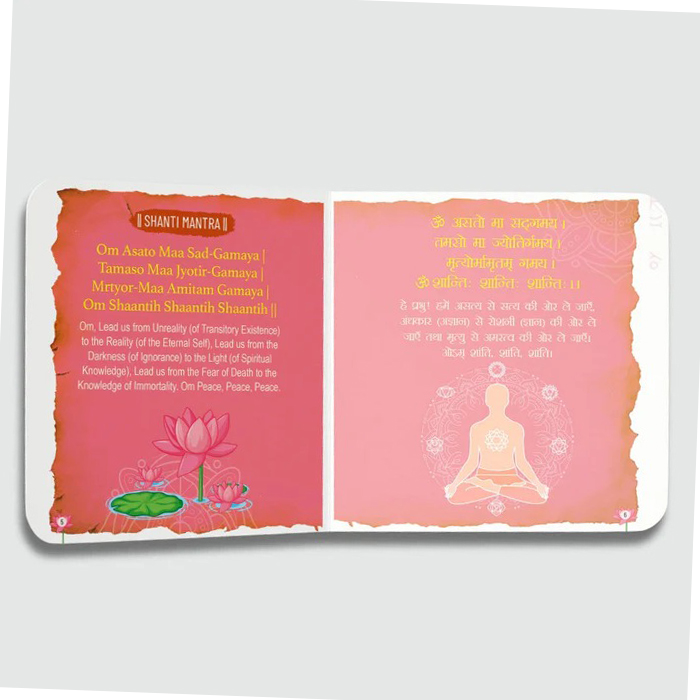We all take the utmost care not to ingest poison in any form. Yet, at times we do so unknowingly. It may be through the canned food we eat or the bottled water we drink.

‘The Power of Thoughts’ cover.
In 2002, there was an uproar in India over the presence of pesticides in bottled water. The Pollution Monitoring Laboratory of the Centre for Science and Environment (CSE) analysed different brands of plastic bottled water. This led to a startling revelation. The prestigious Bisleri water contained 7900 per cent more pesticide content than the stipulated limit!
Bisleri did take corrective action subsequently and, since then, the Indian government too has implemented
strict laws to protect people from poisonous chemicals. However, we remain oblivious of the large amounts of poison that pour into our blood and organs due to negative thoughts. Fear, hostility, envy and resentment—all these adversely affect the body. Thought poisons are subtle, but their consequences can be grave. Let me share my own experience with the mind-body connection.
As a spiritual counsellor and wellness teacher with many decades of experience, I am repeatedly asked for advice on a variety of medical ailments. Wherever my knowledge and experience permit, I do oblige with guidance on yoga, pranayam, nutrition and mind management.
Over the years, as I counselled people, I began to notice that those who complained of acute arthritis were also holding on to undue hostility. They had a resentful nature and were nurturing a grudge in their heart. Could there be a connection?
Then, in a chance meeting, I got an opportunity to test my hypothesis. On a morning walk in Delhi, I met a couple who had previously been active devotees of our satsang.
‘I have not seen you both for a year now,’ I said. ‘Why do you no longer participate?’
‘Swamiji, my wife is very unwell,’ replied the husband. ‘She has severe arthritis.’
I then asked his wife, ‘Are you nurturing excessive hostility?’
‘Oh Swamiji!’ the husband interjected. ‘You hit the nail on the head. She is full of bitterness and refuses to let go of her grudges.’
At that point, the lady spoke up. ‘Swamiji, you are very right. The day my feelings of animosity increase, the pain in my body aggravates. However, now that you have pointed it out, I will try my best to avoid bitter thoughts.’
Medical science informs us that arthritis can develop for a hundred different reasons. However, studies at John Hopkins University have established that the pain experienced by arthritic patients is exacerbated when they harbour hostile feelings towards someone. So, resentful thoughts may not be the cause for arthritis, but they can aggravate the symptoms.
Similarly, excessive anxiety impedes the proper functioning of our digestive system. It is a major cause for ulcers, acidity and irritable bowel syndrome.
Likewise, grief saps the body of energy. It leads to fatigue and weakness of the muscles. In the same manner, excessive worry depresses our immune system, making us susceptible to colds, flu, diseases and infections.
The Vedic scriptures give the reason for this. They explain that harbouring mental poisons disturbs the smooth and regular flow of prana (vital energy). The disturbance in pranic shakti disorganizes the nadis (energy channels within the body), as a result of which some receive more than normal energy, while others get less. Such an imbalanced state over time leads to disease.
Modern research on the mind-body connection is validating the Vedic perspective. Study after study is revealing that extreme hatred, bitter jealousy and numbing anxiety are all harmful to our body. They injure the cells in our kidneys, heart, intestines and liver. In this way, toxic thoughts become the cause of disease. The word ‘dis-ease’ itself means ‘lack of ease’, or dearth of mental harmony.
Conversely, our health and well-being are enhanced when we feel joyous. Positive thoughts of love, hope and courage are the best vitamins we can offer our body. They nourish our organs and rejuvenate our energy levels. Not surprisingly, as per Ayurveda, the most effective way to bring our kapha, pitta and vatta into balance is to cultivate selfless love in our heart.
About 2500 thoughts run through our mind every hour. Imagine their potential healing power if they are joyous and optimistic. A popular Sanskrit prayer states:
Sarve bhavantu sukhinah; sarve santu niramayah.Sarve bhadrani pashyantu; ma kashchid duhkhabhag bhavet. Om shantih shantih shantih.
May all beings be happy; may everyone be healthy and well. May auspiciousness come to us from all sides; and may no one suffer. Om peace . . . peace peace.
The beautiful idea behind the prayer is to train our mind to nurture compassionate and noble emotions.
The excerpt is from ‘The Power of Thoughts’ (published by Penguin Random House India).













